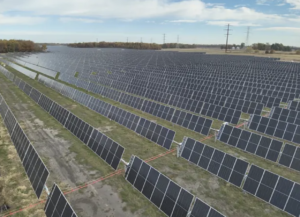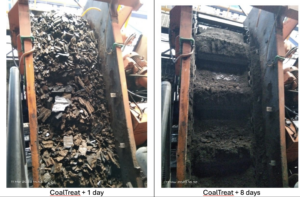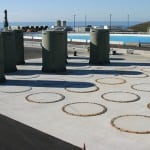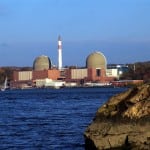No environmental impacts would preclude renewing the operating licenses for two pressurized water reactors (PWR) at the South Texas Project nuclear plant in Bay City, Texas, the Nuclear Regulatory Commission (NRC) concluded on Friday.
The federal regulatory body issued a final environmental impact statement (SEIS) for the proposed renewal of operating licenses for Units 1 and 2, which are scheduled to expire in August 2027 and December 2028. South Texas Project owner STP Nuclear Operating Co. (STPNOC) filed its renewal application on Oct. 25, 2010, seeking to extend the licenses for an additional 20 years—or until at least 2047.
The South Texas Project was the first nuclear plant in Texas when it began operation in 1988. Both units operate at a licensed power output of
3,853 MWt, with a gross electrical output of approximately 1,350 MWe (1,250 MWe net) each. Each unit’s nuclear steam supply system consists of a four-loop PWR designed by Westinghouse Electric. The primary containment for each unit is a dry ambient design.
The NRC is currently reviewing license renewal applications for 16 nuclear units across the U.S., including for South Texas Project Units 1 and 2. In August 2012, the NRC deferred all final decisions on license applications until after a final revision of the Waste Confidence Decision and Temporary Storage Rule is issued, likely on or before an agency-set deadline in September 2014.
In December 2012, STPNOC called on the NRC to pause the units’ safety review, the second part of the NRC’s license review, until 2014 “in view of the length of time before the updated Waste Confidence decision rule will be completed.” Suspension of the license renewal activities would allow STPNOC to “refocus resources to support the near-term operations of Units 1 and 2 and to work on current open issues associated with the license renewal application,” the company told the NRC.
The NRC this September issued a proposed rule concluding that storage in used fuel pools is feasible for 60 years after the licensed life of a reactor and in dry casks for indefinite periods, assuming that dry storage systems can be replaced every 100 years.
Only one reactor’s operating license has or will expire before September 2014: Entergy Corp.’s Indian Point Unit 2. The Buchanan, N.Y.–unit’s license expired on Sept. 28, but the NRC allowed the reactor to enter a period of “timely renewal.” That means the reactor’s operators will implement a provision of the congressionally passed Administrative Procedure Act that allows licensees who request a renewed license at least five years before expiration of the current license to operate under the existing license until the NRC completes its review and reaches a decision on a renewal request.
—Sonal Patel, associate editor (@POWERmagazine, @sonalcpatel)
NRC Issues Final Environmental Impact Statement for South Texas Project License Renewal
No environmental impacts would preclude renewing the operating licenses for two pressurized water reactors (PWR) at the South Texas Project nuclear plant in Bay City, Texas, the Nuclear Regulatory Commission (NRC) concluded on Friday.
The federal regulatory body issued a final environmental impact statement (SEIS) for the proposed renewal of operating licenses for Units 1 and 2, which are scheduled to expire in August 2027 and December 2028. South Texas Project owner STP Nuclear Operating Co. (STPNOC) filed its renewal application on Oct. 25, 2010, seeking to extend the licenses for an additional 20 years—or until at least 2047.
The South Texas Project was the first nuclear plant in Texas when it began operation in 1988. Both units operate at a licensed power output of
3,853 MWt, with a gross electrical output of approximately 1,350 MWe (1,250 MWe net) each. Each unit’s nuclear steam supply system consists of a four-loop PWR designed by Westinghouse Electric. The primary containment for each unit is a dry ambient design.
The NRC is currently reviewing license renewal applications for 16 nuclear units across the U.S., including for South Texas Project Units 1 and 2. In August 2012, the NRC deferred all final decisions on license applications until after a final revision of the Waste Confidence Decision and Temporary Storage Rule is issued, likely on or before an agency-set deadline in September 2014.
In December 2012, STPNOC called on the NRC to pause the units’ safety review, the second part of the NRC’s license review, until 2014 “in view of the length of time before the updated Waste Confidence decision rule will be completed.” Suspension of the license renewal activities would allow STPNOC to “refocus resources to support the near-term operations of Units 1 and 2 and to work on current open issues associated with the license renewal application,” the company told the NRC.
The NRC this September issued a proposed rule concluding that storage in used fuel pools is feasible for 60 years after the licensed life of a reactor and in dry casks for indefinite periods, assuming that dry storage systems can be replaced every 100 years.
Only one reactor’s operating license has or will expire before September 2014: Entergy Corp.’s Indian Point Unit 2. The Buchanan, N.Y.–unit’s license expired on Sept. 28, but the NRC allowed the reactor to enter a period of “timely renewal.” That means the reactor’s operators will implement a provision of the congressionally passed Administrative Procedure Act that allows licensees who request a renewed license at least five years before expiration of the current license to operate under the existing license until the NRC completes its review and reaches a decision on a renewal request.
—Sonal Patel, associate editor (@POWERmagazine, @sonalcpatel)










